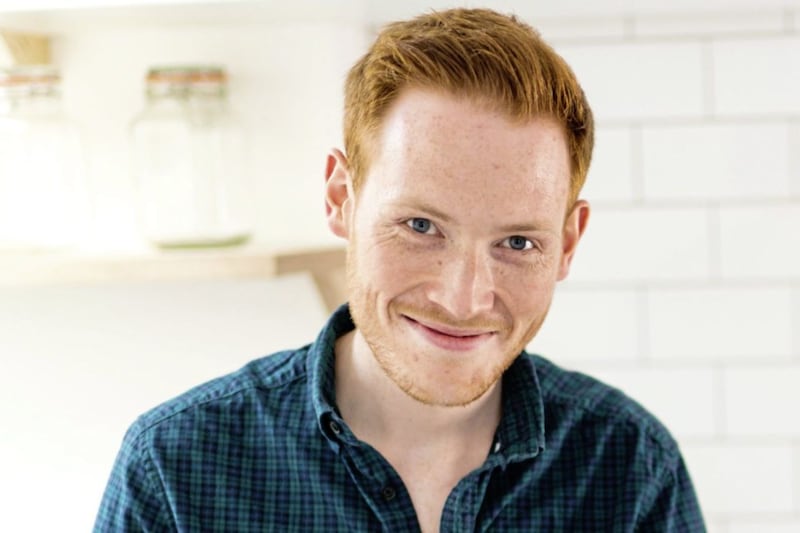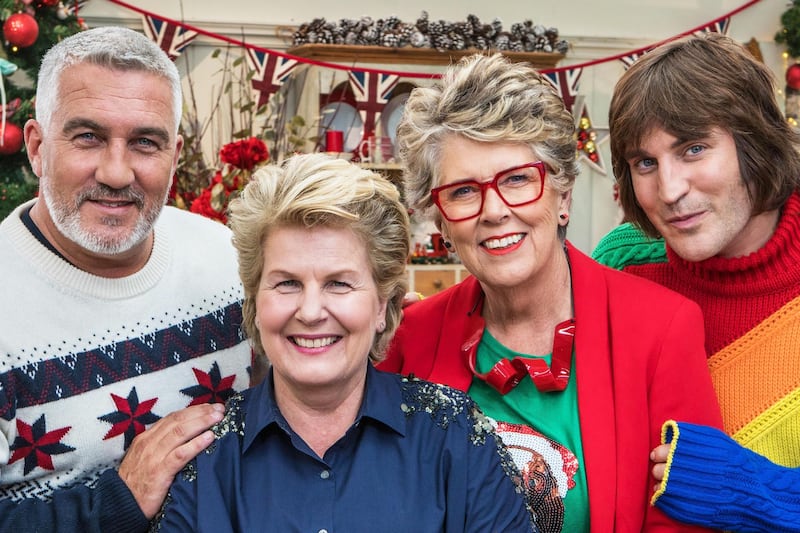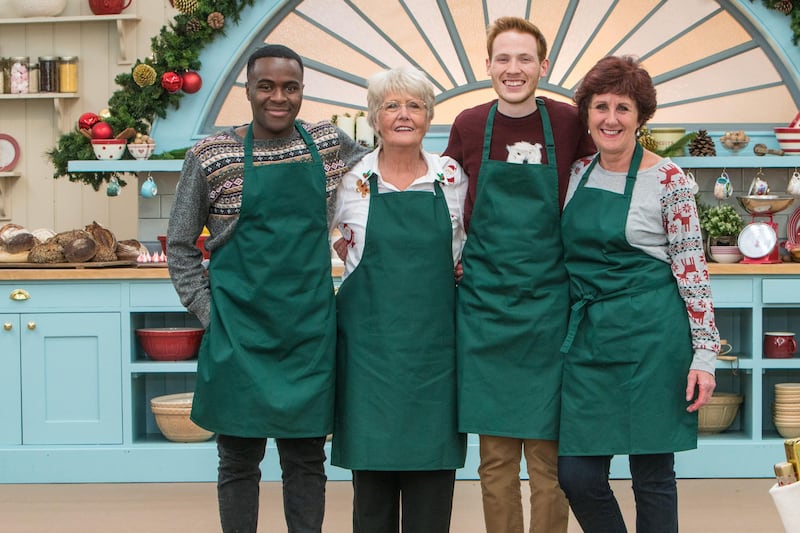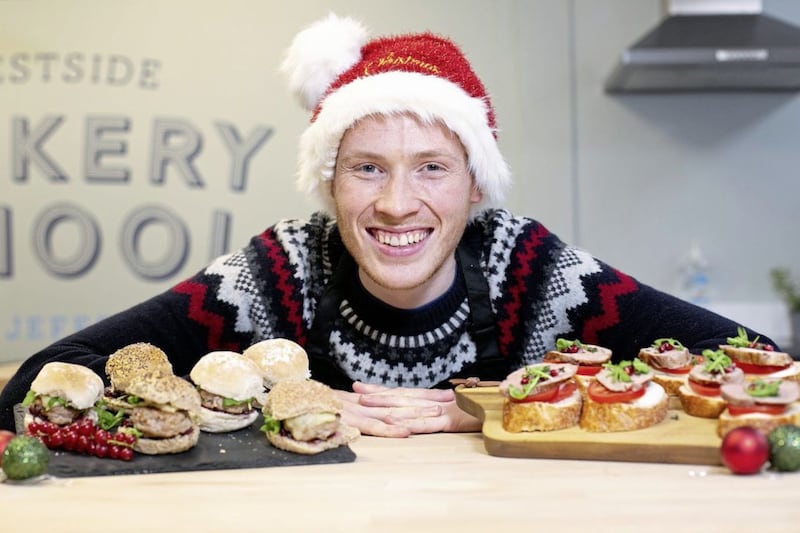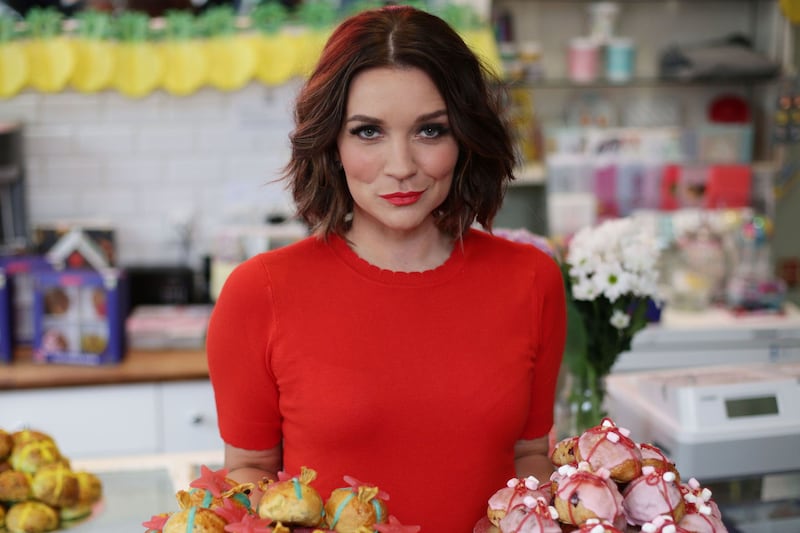DID you know the molecular density of meringue is similar to that of the tile used on the Buran space shuttle? Or that the compound structure of honeycomb mirrors the metal foam protecting astronauts on the international space station?
One man who knows the answers to these questions and many more is Holywood aerospace engineer and Great British Bake Off contestant Andrew Smyth.
A finalist in the 2016 competition, he was applauded for his outrageously engineered creations, including a gear-shaped savoury pie, inspired by the technical drawings of Leonardo da Vinci.
Andrew, who studied aerospace engineering at Cambridge University, works as a performance technologist in Rolls-Royce, based in Derby.
“I work in Future Aircraft Research, which entails modelling aircraft flight and future technology," he tells me. “In the world of flying, especially post-Covid, I think we’ll be seeing more of a focus on more sustainable travel, through sustainable aviation fuels, use of hydrogen, and improving aircraft and jet engine design.”
Following his Bake Off success, Andrew reduced his hours to work four days, dedicating the rest of his week to teaching patisserie classes and developing his 'bakineering' live shows.
His latest show, Baking in Space – Bake to the Future, will be premiered at this week’s Science Week 2020. Now in it’s 25th year, the Irish science festival will reflect our present situation, as well as explore how science can help us to make positive choices that will impact the environment, our health and our quality of life in the future.
Delivered digitally and suitable for a general family audience, ages eight plus, Baking in Space is packed with live demos, baking, space, scientists, engineering psychology and activities to do at home, including baking an edible moon.
“I describe the show as a journey into orbit, where we use baking to explore the incredible engineering that can take us to space, and how we eat once we’re there," Andrew says.
“It’s been a tough year for all of us, so we’ve put a lot of thought into how to make the show as fun, engaging and interactive as we can, particularly with things to try at home.
“Part of the show especially looks at how life in lockdown has parallels with the isolation of living in space. I think we’ve all felt a bit distant at various points this year and we want to recognise that in the show.
“And I’ll be sharing the science behind flour-free recipes which will come in handy if there is another shortage,” laughs Andrew.
He will be joined for the event by Helen Sharman, who became the first British astronaut when she participated in a mission to the Soviet modular space station Mir in May 1991, as well as representatives from the European Space Agency and a range of Irish researchers.??While Andrew admits space travel may be on his wish list in the future, he’s not rushing on board any space shuttles just yet.
“I’d like to have a short trip to space, absolutely. The experience would be fascinating, but I think I’ll wait until the technology has matured so that short trips are both safe and affordable. I don’t fancy a longer trip to Mars, though – I’d miss too many things from Earth.”
A popular contestant on Bake Off, Andrew learnt his basics from his mother and grandmother in Co Down.
“I only seriously expanded my repertoire when I left university and had a proper kitchen of my own to experiment in,” adds the 29-year-old, who has fond memories of his time on the cooking show.
“The shock of getting star baker in week seven for desserts week was a total highlight, I couldn’t believe it. It was especially gratifying after having had a meltdown over a terrible tiered floral cake the week before. It was a huge confidence boost.”
And his views on the new Channel 4 series?
“This year’s batch of bakers seem particularly lovely. It’s a lovely warm thing to look forward to in the week amidst all the chaos in the real world.”
While engineering and baking may seem poles apart, Andrew believes the two have lots in common and has used the principles of both to help him in his career.
“Cooking is an art, baking is a science. But there are a lot of shared ideas in both baking and engineering: precision, time management, understanding the principles. These are all keys to success. When approaching a new bake, my methodical step by step engineer’s approach definitely helps in tackling the unfamiliar.”
And how has baking helped him with his job?
“It’s massively helped in getting to know new colleagues when I bring a bake into the office,” he laughs.
Andrew combined his two great passions to brilliant effect when he presented the Duke of Cambridge with a cake in the shape of a jet engine during a royal visit to the Rolls-Royce aero engines plant.
“It was definitely the most mentally stressful bake to date. I was up until 4am the night before making sure everything rotated as planned," he says.
“I did make a more challenging entirely edible wind turbine cake a few months after, which is my proudest creation to date. It had a biscuit bearing and sugar-welded candy cane blades,” he adds.
Looking ahead Andrew has plans for his own television programme.
“I’d love to take the bakineering concept to a bigger audience and on a grander scale. I have some plans in the works, but we’ll have to wait until 2021 to see if they come to fruition.”
He also doesn’t rule out a bakineering cookbook and might even design his own aircraft – albeit an edible one.
“It would be incredible to create an edible model glider, though. Perhaps that can be my lockdown winter project.”??:: Baking in Space is sponsored by Yakult who are boldly going into space for experiments with astronauts on the International Space Station. It will take place at various times during Science Week 2020. Visit Britishcouncil.ie/baking-in-space for your free ticket and downloadable creative activity pack. For full details of all events visit Sfi.ie


